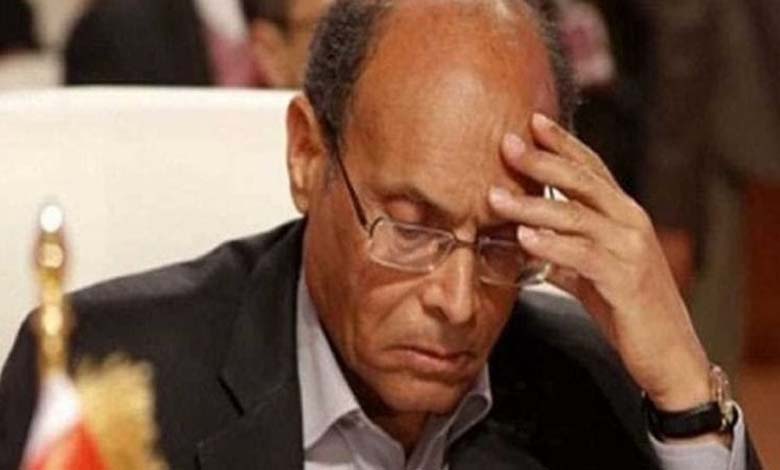Former ally of the Muslim Brotherhood, Moncef Marzouki incites rebellion in Tunisia and calls for halting the prosecution of the group

After being absent from the political scene since the end of his alliance with the Muslim Brotherhood in 2014, former Tunisian president Moncef Marzouki, from abroad, announced the preparation of what he described as “a broader movement immediately after the end of the Gaza war and the call for a national conference bringing together all the forces aligned under the banner of the 2014 constitution (the Brotherhood’s constitution) to prepare an alternative.”
Activists believe that “Marzouki, who came to power by chance through his alliance with the Muslim Brotherhood, is calling for the overthrow of the government in Tunisia and targeting judges who have embarked on prosecuting anyone who has committed crimes against the country and its people.”
It is worth noting that Marzouki had previously incited rebellion in Tunisia on French television following the measures of July 25, 2021, which ousted the Muslim Brotherhood regime, and in October 2021, a judgment in absentia was issued against Marzouki sentencing him to four years in prison and revoking his diplomatic passport in this case that sparked great anger in Tunisia.
Tunisian political analyst Omar Al-Yefrani said that “Marzouki‘s call to prepare an alternative is an explicit call for rebellion and overthrowing the government, aiming to conspire against the security of the state and target honest judges who have embarked on holding the Muslim Brotherhood and the corrupt accountable.”
He also stated that “Marzouki‘s call for rebellion comes less than 8 months before the presidential elections scheduled for next October, with the aim of sowing chaos in the country.”
He added that “Marzouki‘s description of figures such as the head of the Ennahdha movement of the Muslim Brotherhood, Rached Ghannouchi, and leaders of the organization like Ali Larayedh and Noureddine Bhiri, who have committed crimes against the state and are being tried for terrorist crimes, including sending terrorists to hotspots and political assassinations and financial corruption and conspiracy, as ‘prisoners of war,’ aims to whitewash them.”
He explained that “Marzouki lost in the presidential elections of 2014 and 2019 and that these defeats were an inevitable declaration of the end of a politician who had lost his way and had plunged into the pools of the corrupt Muslim Brotherhood.”
Marzouki assumed the interim presidency between 2012 and 2014, after the constituent forces of the Constituent National Assembly agreed to entrust him with the position. Thus, Marzouki‘s assumption of the presidency in 2012 was not the result of strong popular will, leading to his defeat in the first direct presidential elections in 2014, as the people realized the weakness of his rule.












